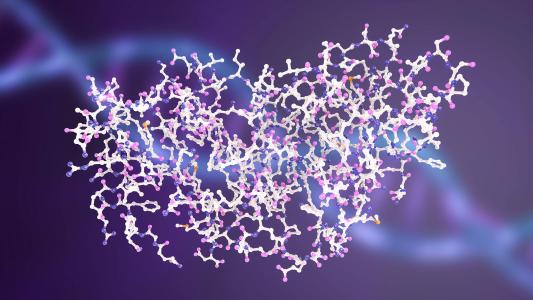By the time tumors start to grow on the lining of a cancer patient’s abdomen, there’s little hope of long-term survival — chances are, they’ll be dead within six months.
That could change in the future, though, as researchers are ready to put an experimental cancer treatment to the test in a U.S. trial — and if it works as hoped, the treatment could give late-stage abdominal cancer patients a new lease on life.
Combating Abdominal Cancer
The experimental cancer treatment is called “pressurized intraperitoneal aerosolized chemotherapy (PIPAC),” and it starts with putting abdominal cancer patients under general anesthesia.
Surgeons then make two small incisions in the patient’s abdomen, insert a pair of tubes, and pump air into the abdomen, causing it to inflate like a balloon. (Weird, right?)
After that, they spray an aerosol chemo through the tubes, all over the interior of the inflated abdomen. This coats the tumors without opening up the abdominal cavity, which is invasive and dangerous, while using a minimum of the harsh chemicals.
The surgeons wait half an hour for the chemotherapy to seep into the patient’s tissue and then vacuum out any excess droplets.
The Benefits of PIPAC
In trials overseas, PIPAC has been shown to have several benefits over traditional chemo for abdominal cancer patients.
For one, it requires only 10-20% of the usual dosage, which makes it more tolerable for patients — they don’t even experience any hair loss, according to Thanh Dellinger, a principal investigator of the new trial at medical research center City of Hope.
PIPAC may enable our patients to live their best life.
Mustafa Raoof
The spray is also able to cover the entirety of the abdomen, ensuring the chemo reaches any and all tumors, and it’s far less invasive than tumor-removal surgery, which sometimes isn’t even an option.
“Certain abdominal cancer patients whose disease cannot be surgically removed or who might not be able to survive major surgery could now undergo a short, laparoscopic surgery and then go home to recover within a day or two,” Dellinger said.
The Cancer Treatment Trial
City of Hope’s PIPAC trial will include up to 24 patients, who will be split into two cohorts to test two different dosing regimens. Each patient will undergo PIPAC three times, with six weeks between treatments.
City of Hope is looking to enroll patients with late-stage abdominal cancer who’ve already undergone at least one other type of chemo treatment without success. These types of patients often have a low quality of life, according to researcher Mustafa Raoof.
“They may need to go to the hospital every week to undergo painful drainage of the abdomen, or they may have to live life attached to a bag that holds their urine or feces,” he explained. “We want our patients to be able to live their best life, and PIPAC may enable them to do exactly that.”
We’d love to hear from you! If you have a comment about this article or if you have a tip for a future Freethink story, please email us at [email protected].






